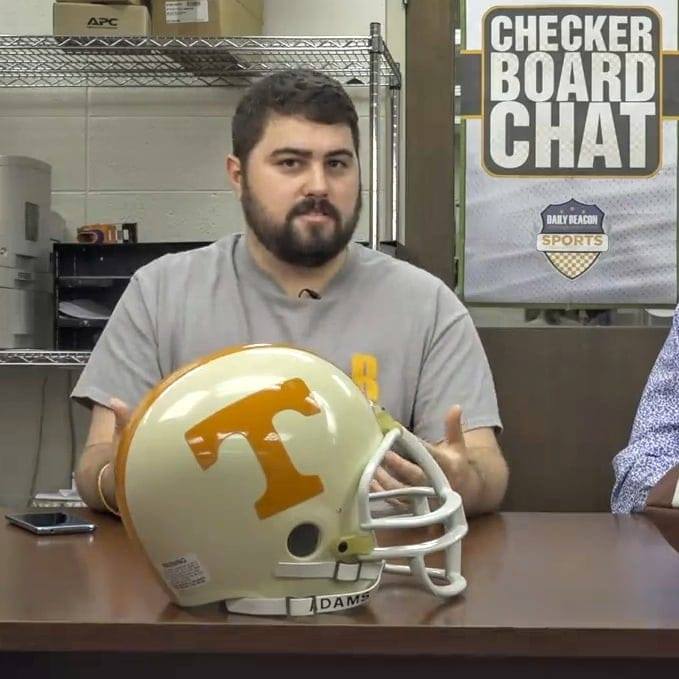A federal judge ruled in favor of the state of Tennessee’s preliminary injunction against the NCAA Friday, striking a blow to the organization and its enforcement of rules concerning name, image and likeness.
More than a week after legal representatives of the states of Tennessee and Virginia and the NCAA set forth arguments in a U.S. District Court in Greeneville for and against a preliminary injunction that would suspend the NCAA's enforcement of NIL rules, Eastern Tennessee District Judge Clifton Corker sided with the states in their antitrust lawsuit.
The ruling puts an immediate restriction on the NCAA being able to enforce NIL rules.
TALK ABOUT IT IN THE ROCKY TOP FORUM.
ENJOY VOLREPORT WITH A PREMIUM SUBSCRIPTION.
"For the reasons provided herein, Plaintiffs' Motion for Preliminary Injunction [Doc. 2] is GRANTED," the decision, obtained by VolReport, said. "It is hereby ORDERED that, effective immediately, Defendant NCAA; its servants, agents, and employees; and all persons in active concert or participation with the NCAA, are restrained and enjoined from enforcing the NCAA Interim NIL Policy, the NCAA Bylaws, or any other authority to the extent such authority prohibits student-athletes from negotiating compensation for NIL with any third-party entity, including but not limited to boosters or a collective of boosters, until a full and final decision on the merits in the instant action.
"It is further ORDERED that, effective immediately, the NCAA is restrained and enjoined from enforcing the Rule of Restitution (NCAA Bylaw 12.11.4.2) as applied to the foregoing NIL activities until a full and final decision on the merits in the instant action."
With the decision, recruits and transfer players can now negotiate NIL contracts before signing and enrolling with a school, which was previously barred by the NCAA.
The state argued earlier this month that the previous rules caused "irreparable harm" to student athletes.
"This case is really about the student athletes," Tennessee attorney general Jonathan Skrmetti said following the hearing on Feb. 13. "That's whose rights we're fighting for here and their irreparable harm is not being able to make an informed decision and not being able to get the benefit of negotiation and when everybody is getting rich off college sports and the people who are responsible for creating college sports are the only ones who aren't allowed to prosper, that's a problem and it's not legal."
In a statement from the attorney general's office, Skrmetti praised the decision while reaffirming the state's determination to fight the NCAA in court.
"“The court’s grant of a preliminary injunction against the NCAA’s illegal NIL-recruitment ban ensures the rights of student-athletes will be protected for the duration of this case, but the bigger fight continues,” Skrmetti said in a statement. “We will litigate this case to the fullest extent necessary to ensure the NCAA’s monopoly cannot continue to harm Tennessee student-athletes. The NCAA is not above the law, and the law is on our side.”
What it could mean for Tennessee athletics
The decision could also signal victory for the University of Tennessee, which was previously under the cloud of an alleged NCAA investigation into its NIL practices across multiple sports.
The investigation, which was made public last month, has brought NIL rules and how they are enforced by the NCAA to the forefront.
School officials, including chancellor Donde Plowman and athletics director Danny White, called out the NCAA in public statements for its handling of NIL and ever-changing rules which they argued has caused confusion.
The state of Tennessee, joined by Virginia, filed a suit against the NCAA in response and though the investigation isn't directly tied to the case, the decision does damage the NCAA's authority as far as NIL is concerned.
"Is is intellectually dishonest for the NCAA staff to issue guidelines that say a third-party collective/business may meet with prospective student-athletes, discuss NIL, even enter into a contract with prospective student-athletes, but at the same time say that the collective may not engage in conversations that would be of a recruiting nature. Any discussion about NIL might factor into a prospective student-athlete's decision to attend an inherently unworkable situation and everyone knows it.
"Student-athletes and their families deserve better than this as do the universities and athletic departments trying to manage and follow the rules," Plowman said in an email to NCAA President Charlie Baker on Jan. 29.
UT has yet to receive a Notice of Allegations and NCAA legal representatives did not confirm that there was an investigation during the hearing.
The decision doesn't necessarily put UT in the clear, but it does put the NCAA in a tough spot. It can either back off of UT or dig in and try to continue the legal wrangling by changing the definition of its alleged allegations.
For now, the NCAA is in an awkward position. Friday's ruling could have ripple effects across college athletics with the state of Tennessee providing other states with a blueprint should they try and go toe-to-toe with the NCAA over NIL.
–––––
– TALK ABOUT IT IN THE ROCKY TOP FORUM.
– ENJOY VOLREPORT WITH A PREMIUM SUBSCRIPTION.
– SUBSCRIBE TO THE VOLREPORT YOUTUBE CHANNEL.
– FOLLOW VOLREPORT ON TWITTER: @TennesseeRivals, @TMansfieldMedia, @ByNoahTaylor, @RealTBannerman, @RyanTSylvia, @Dale_Dowden, @ShayneP_Media, @TylerIvens.
–––––
